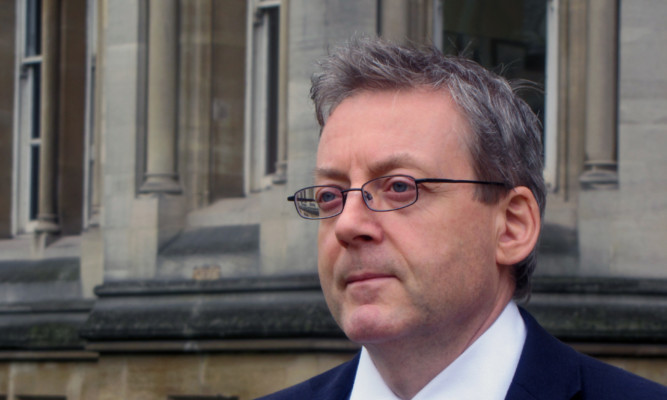A remarkable war of words between two academics showed no signs of evolving into peace yesterday as a row over the work of Charles Darwin and relatively unknown Perthshire fruit farmer Patrick Matthew continued.
In Monday’s’s Courier, Darwin author Julian Derry, of Edinburgh University, accused Nottingham Trent University’s Dr Mike Sutton, of “very poor and lazy research offset by a big aggressive ego”.
But Dr Sutton stood by his work and accused Mr Derry of having a “weirdly closed mind” whilst using “obscene language including the misogynistic four-word term of abuse” against him in social media communications.
In a lively lecture organised by the Carse of Gowrie Sustainability Group at the James Hutton Institute, Invergowrie, last Thursday night, Dr Sutton challenged the orthodox view that Darwin was the first to discover the process of natural selection and that Origin of Species, published in 1859, had been heavily influenced by Matthew’s book ‘On Naval Timber and Arboriculture’, published in 1831, which contains the complete hypothesis of the theory of natural selection.
He also claimed that Darwin, who always denied plagiarism, and his co-publisher Alfred Russel Wallace, must not only have been aware of Matthew’s work but borrowed from it heavily.
Sutton claimed Scotland had been denied a “science hero” and that a “great injustice” had been done.
Mr Derry, who did not attend Thursday’s lecture – but admits he had already spent a couple of days arguing with Dr Sutton on Twitter – said that while Matthew was “clearly a great man of vision”, he did not influence the course of evolutionary history in the way that is claimed.
He accused Dr Sutton of “very poor and lazy research offset by a big aggressive ego”.
But hitting back in a letter to The Courier, Dr Sutton, who used groundbreaking Google search technology to research the work of Matthew and Darwin, accused Mr Derry of using “obscene language including the misogynistic four-word term of abuse starting with ‘C’” in social media communications.
He added: “The content of Mr Derry’s “open letter” reveals the apparent problem with J. F. Derry’s weirdly ‘closed mind’.
“It would be rather tiresome and pointless to address all of his totally unsubstantiated and factually incorrect rants.
“Mr Derry writes that claiming something is 100% proven is not the language used by scientists. In that regard, he confuses the language used by scientists when they to refer to evidence to confirm or disconfirm a hypothesis with that used by a rational human being to describe what they are reading in a book, journal, or indeed a newspaper such as this one.“
malexander@thecourier.co.uk
